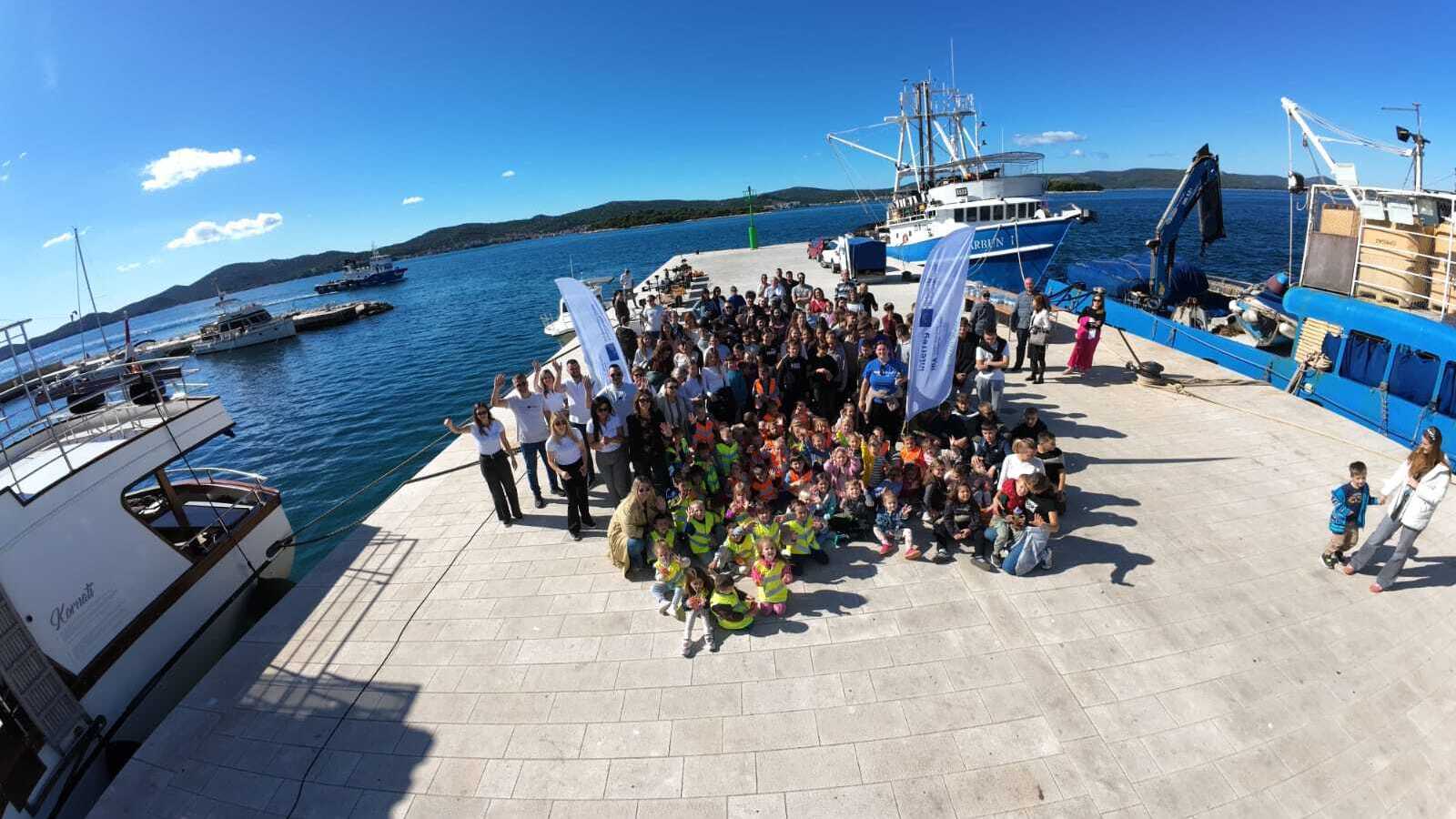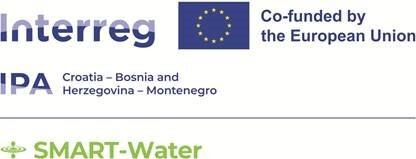SMART-Water is a cross-border project focused on developing a smart system for monitoring inland water quality and conserving the biodiversity of lake ecosystems. It focuses on three lakes, Lake Vrana, Lake Deransko, and Lake Skadar. This project is important because it builds a regional early warning system for lakes, scientifically grounded, operational, and clearly oriented toward the public interest.
The team assembled for this project seeks to establish a shared framework for monitoring and managing the quality of inland waters, which calls for cross-border cooperation. Water pollution crosses borders, and preventing and controlling cross-border water pollution requires a coordinated approach to monitoring and water quality management.
SMART-Water will facilitate the exchange of data and information on water quality among countries in the region, enabling them to work together effectively to address cross-border and inter-regional water pollution. Various socioeconomic and environmental factors that affect the quality and management of water resources are specific to the SMART-Water target areas.
Biograd as an open laboratory
This month, the project was presented to the wider public at the Business Incubator in Biograd na Moru, where participants had the opportunity to hear a series of expert talks and learn about activities and research carried out to date, as well as plans and expected project results.
The program was opened by Prof. Zvjezdan Penezić, PhD, Vice-Rector of the University of Zadar, who emphasized the importance of international cooperation in environmental protection. The introductory presentation of the project was delivered by Assoc. Prof. Neven Cukrov, PhD (IRB), and Assoc. Prof. Silvija Šiljeg, PhD (University of Zadar).
Expert presentations followed that bridged science and practice. Anja Batina (University of Zadar) presented a framework for monitoring the health of lake ecosystems and assessing water quality. Marija Dugandžić (Hutovo Blato Nature Park, Bosnia and Herzegovina) spoke about the importance of systematic monitoring for conserving natural heritage, Jana Vukotić (Institute for Hydrometeorology and Seismology of Montenegro, ZHMS) presented ZHMS field methodology within the project, and Sandi Orlić, PhD (IRB), offered an accessible look at “The Microcosm in Lake Vrana.”
GeoTech Day and 275 young ambassadors for water
After the expert segment, the event moved to the Biograd waterfront, where GeoTech Day was held, a public demonstration of smart solutions for water conservation. Preschoolers, primary school pupils, and high school students gave the event a special educational dimension. As many as 275 children, through workshops and demonstrations, learned why waters are sensitive, how sensors work, and what satellites “see” from orbit.
The organizers thanked the principals and directors of the Biograd na Moru Kindergarten, the Ivana Brlić-Mažuranić Kindergarten, Biograd na Moru Elementary School, and Biograd na Moru Secondary School for their support and participation.
Staff from the Center for Geospatial Technologies at the University of Zadar presented innovative approaches and technologies for monitoring water quality, bringing the SMART-Water presentation program in Biograd na Moru to a close.
Partners and financing framework
The project is implemented under the Interreg VI-A IPA Programme Croatia, Bosnia and Herzegovina, and Montenegro, 2021 to 2027, with a total value of €1,532,652.51, and 85 percent co-financing from the European Union. The implementation period runs from 1 August 2024 to 31 July 2027.
The project lead is the Ruđer Bošković Institute, and the partners are the University of Zadar, Hutovo Blato Nature Park (Bosnia and Herzegovina), the Institute for Hydrometeorology and Seismology of Montenegro (ZHMS), and the Environmental Protection Agency of Montenegro.



